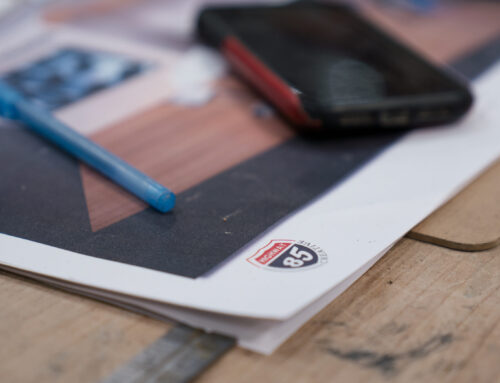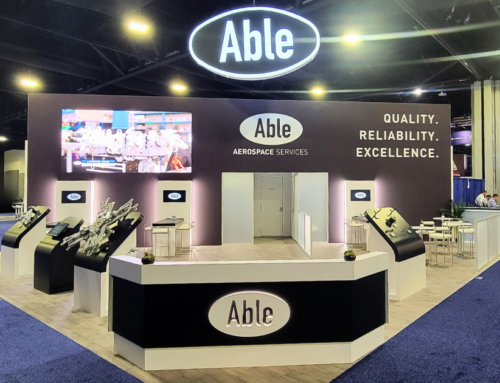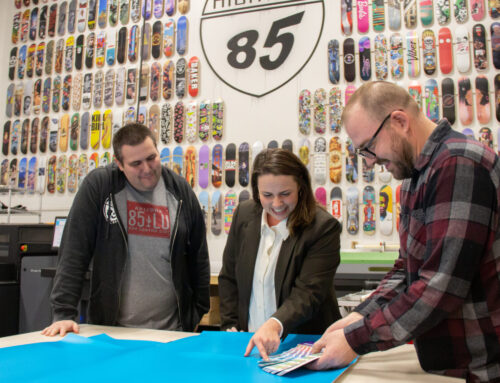Attending a trade show is a great way for new business owners and seasoned entrepreneurs alike to effectively network and scale their companies with the right connections. Whether you are interested in promoting a local niche service or if you have a brand you want to grow internationally, planning for and successfully budgeting for your first trade show in advance is essential. Understanding how to set and stick to your trade show budget is imperative to avoid highly preventable and costly mistakes, especially if you are new to the trade show community.
Search for Local Trade Shows
When you have a strict budget to work with as a business owner and you are simply trying to spread the word about your brand, consider searching for a local trade show event. Attending a local trade show event is a way to drastically cut travel and shipping costs, especially if you have plans to create an elaborate booth setup. Traveling across the country for a trade show for your first time can result in overspending if you are unfamiliar with ordering materials and supplies from your intended destination.
Choosing a smaller, more local trade show is highly advisable to learn more about how trade shows operate and to become familiar with setting up and promoting your own booth without spending more than your budget allows. Local trade shows are also likely to cost less than national trade shows (even if they receive less traffic). The more familiar you become with the trade show industry, the easier it is to properly plan future trade shows even if you have plans to attend one in a major city or out of the country.
Must-Haves for Your First Trade Show
While trade show materials, supplies, and promotional materials vary with each business and brand attending, there are a few must-have items for any attendee. Some of the most common must-have items for your first trade show include:
- Storage and Organization: Whether you are setting up your own booth or selling products and services, organization is key. Storage and organization are necessary for any trade show, especially if you are attending a trade show that lasts for more than one full day. Choose appropriate storage and organization containers that are easy to travel with and that are flexible for your needs.
- General Supplies: Tape, Scissors, Paper, Paperclips, Staplers, Pens, Calculator, Business Card Holder
- Banner: A banner helps attract individuals to your booth or location while also showcasing your company’s logo to all of those who attend.
- Business Cards: Without business cards, it can quickly become challenging to network with other attendees and booth sponsors. Swapping business cards is a must for any entrepreneur who is interested in making connections and building professional relationships with trade show attendees.
Non-Necessities to Consider
Attending a trade show and sponsoring an event does not require you to overspend on any budget you have available. While some trade show setups are more complex and robust than others, new businesses are less likely to overindulge in marketing and promotional materials, especially during a first trade show event. Some non-necessities to consider for your first upcoming trade show may include:
- Standing Banners: Standing, horizontal, and vertical banner stand setups provide additional promotion of your brand or the campaign you intend to promote.
- Interactive Material: Using tablets, smartphones, and nearby laptops are all useful when you want to showcase a digitally interactive both during your first trade show.
- Screens: Do you want to use monitors and other screens to show a video, animation, or a live overview of your website?
- Lighting: Is the location of your upcoming trade show well-lit? Do you have access to electricity? What type of lighting is optimal for the display you envision for your business and brand
Setting a Realistic Budget
Setting a realistic budget for your first trade show is only possible once you have determined the overall cost of the trade show you plan to attend along with the booth or sponsorship package you have selected. Calculate the cost of airfare, travel, renting a booth, and accommodations before working with the remainder of your budget to purchase the materials you need for your space.
What Should You Budget for When Preparing for Your First Trade Show?
Before you begin making purchases and ordering your booth display items, there are a few things to keep in mind while budgeting. Some of the most notable items to budget for while planning your very first trade show include:
- Airfare
- Hotel/Hostel Accommodations
- Event Ticket Cost (Per Day?)
- Sponsorship/Booth Rental Cost
- Access to Electricity Cost
- Digital Display Cost (Varies by Event)
- Parking Costs
- Shipping Costs (For Booth Display Material)
- Material Handling Fees at the Venue
- Setup & Tear Down Labor for Your Display
Once you have a clear understanding of the basic costs involved when attending a trade show, consider investing in the following:
- Business Cards: For each staff member attending your upcoming trade show.
- Banners: Vinyl, fabric, and solid banners are available to display above your booth or in front of the table section of your booth space.
- Informational Material: Printed material regarding your brand and the products or services you offer.
- Promotional Material: Giving away pens, notepads, backpacks, tote bags, clothing, and other branded products can drastically boost your brand’s overall awareness and reputation during your first trade show event.
Consider How You Intend to Attract Individuals to Your Display
Before you begin purchasing trade show display items and promotional gear, consider the demographics of the audience you want to reach. How does your brand stand out among your competition? Is your logo attractive to your prospective customers? What type of display or promotional event is likely to garner the most activity at your trade booth?
Renting a Trade Show Display
If you are new to owning a business and limited with a set budget, consider renting a trade show display, especially if you are attending a trade show for the first time. Trade show display rentals include all of the materials necessary to place horizontal, vertical, and hanging banners with customization options based on your current budget and display needs.
Launch an Effective Marketing Campaign to Promote Your Upcoming Trade Show
Attending a trade show is not as thrilling when you do not have an excited audience. Launching an effective marketing campaign using local and online tools can drastically improve the overall experience of attending your first trade show. Use tools such as social media to inform influencers, followers, and other attendees that you are also an attendee and plan to host a booth of your own.
Provide incentives to followers who visit your booth such as an entry in a contest you are holding or a free promotional item for stopping by and visiting. Use social media groups and ad services to create digital marketing campaigns that resonate with your current followers and those who may attend the trade show you are interested in. Interact and engage with users who comment and ask questions on related posts and updates you share.
Conclusion
Knowing what is involved in the process of attending a relevant trade show is essential to minimize financial risk and stress that is most commonly associated with attending a trade show. With the right preparation and a thorough understanding of your entire trade show budget, attend your next show feeling comfortable with and confident in any decisions you have made.





[…] Video walls can be pricey, so make sure you factor that into your trade show budget. […]
[…] Video walls can be pricey, so make sure you factor that into your trade show budget. […]
[…] Are you looking for more ways to save money at your first trade show? Be sure to check out our guide on successfully budgeting for your first trade show. […]